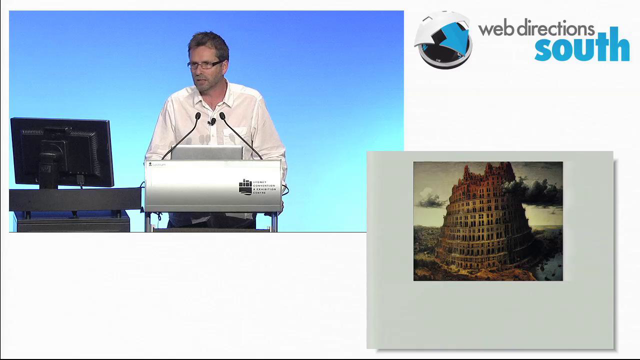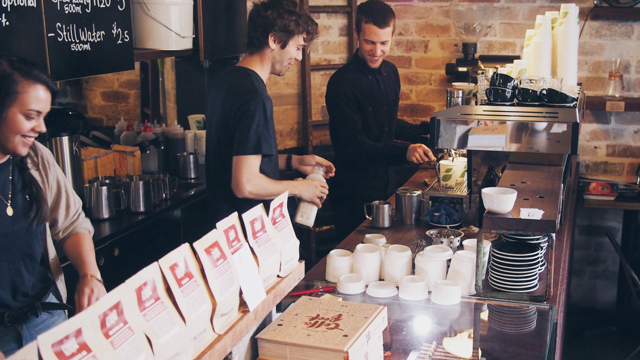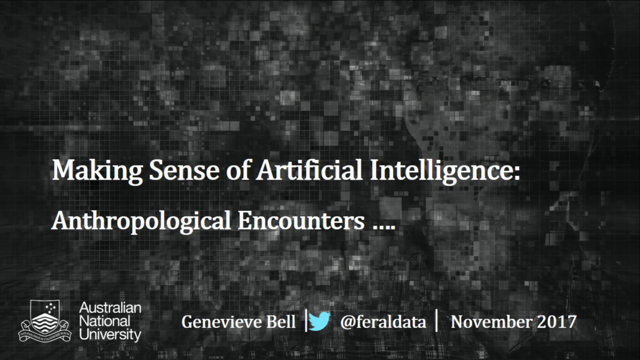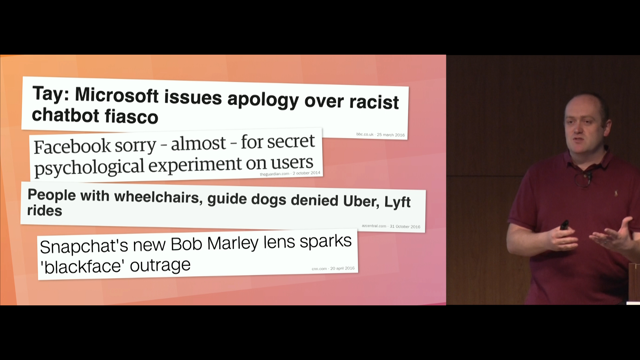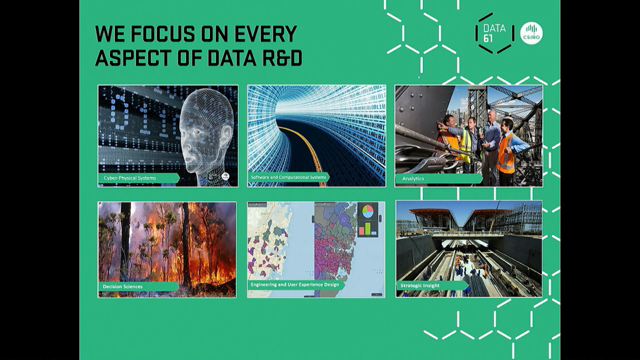Awakening the better angels Part 1: Life as an entanglement of mutual obligation

The Genesis of Government 2.0 and Reflections on Change
Nicholas Gruen begins by humorously correcting a previous statement about his impact on the Australian economy, then reflects on his involvement with the Government 2.0 Task Force. He shares a personal anecdote about the task force's report being translated into Korean, highlighting the global reach of their work. Gruen sets the stage by recalling the optimism of the late 2000s, marked by technological advancements and political movements like the Arab Spring, and introduces his series of explainer videos aimed at distilling complex ideas into accessible formats. This segment establishes the context for his exploration of institutional change and the potential for impactful communication.
Exploring Human Nature and Institutional Influence
Gruen presents the first video from his series, which delves into the dual nature of humanity and the role of institutions in shaping behavior. He discusses how current systems often promote self-interest, leading to systemic issues where individuals rise to power by exploiting these structures. The video introduces Elinor Ostrom's ideas on designing institutions that foster cooperation and mutual benefit, aiming to bring out the best in people. This segment relates to the overall theme by questioning the efficacy of existing institutions and proposing a shift towards more collaborative frameworks.
Case Study: Ireland's Citizen Assembly
Gruen narrates the story of Finbar O'Brien and Chris Lyons, two individuals from different backgrounds who participated in Ireland's Citizen Assembly on same-sex marriage. Through their interaction, they overcame personal biases and contributed to a constructive political process. This example illustrates the potential of citizen assemblies to resolve divisive issues by fostering understanding and cooperation, contrasting with traditional adversarial politics. The segment underscores the transformative power of inclusive, deliberative institutions in addressing societal challenges.
Reimagining Democracy: The Role of Citizen Juries
Gruen expands on the concept of citizen juries as a means to enhance democratic processes. He reflects on historical debates in Australia and the potential for citizen juries to address symbolic and substantive issues in governance. By drawing parallels to historical democratic practices, he argues for a more participatory approach that includes representation by sampling alongside traditional electoral systems. This segment connects to the broader theme by advocating for innovative democratic reforms that empower citizens and improve institutional trust.
Democracy's Three-Legged Stool: A New Perspective
Gruen introduces the idea of democracy as a three-legged stool, comprising direct democracy, electoral representation, and representation by sampling. He contrasts the competitive nature of elections with the collaborative potential of citizen juries, emphasizing their democratic essence as described by Aristotle. Gruen highlights the historical context of these concepts, noting the American founding fathers' preference for oligarchic structures. This segment proposes a paradigm shift in democratic thinking, suggesting that integrating citizen juries could address contemporary governance challenges and align with foundational democratic ideals.
Look, I did want to correct John on one point.
He said it'll be clear, that he said something about not, it's not very easy to overestimate my impact on the Australian economy.
It actually is quite easy to overestimate my impact on the Australian economy.
So I think I got to know John when I was chairing a thing that Lindsey Tanner set up called the Government 2.0 Task Force.
How many people here has have heard of that?
Great.
Do you know that was translated into Korean.
I arrived in Korea and they handed me a translation.
I'm very proud of that more than having this immense impact on the Australian economy that you heard, a government report translated into a foreign language.
It was in English to start with, which most government reports, as are not.
No, that doesn't work.
So it's on, it's not on.
Okay.
So now you see it, now you don't.
Now you hear it, now you don't.
So, we got to know each other at around, in around about 2009.
Now John has already taken you through some of what 2009 felt like, or at least what 2005 felt like, all kinds of incredibly exciting things were happening.
Wikipedia was charging around, social media, Obama everybody told us that was the beginning of something wonderful.
2011, the Arab Spring.
I was one of the few people.
I won't say that I predicted that the Arab Spring wouldn't work out.
I didn't know, but I was one of the few people who watched the Arab Spring and thought.
So we've torn down what does exist?
Is this gonna work?
Why would we expect this to end up better than what it is?
And so that's what we've been learning, ever since as we've watched one thing after another go wrong.
I've tried to think about those things and I will, and I've, I'm near to finishing a series of eight, what is yeah now 18 short videos, and in a, one way, one elevator pitch for these videos is that they, give you a book sized treatment of ideas in 18 bite sized explainer videos, which will hopefully have more cut through a larger audience than a nonfiction book.
So I want to show you the first of those videos, and then I'll make a few extra additional comments.
So that is the first video.
Let's go.
Are we humans, good or bad, angels or devils?
I don't know about you, but for me the answer is both.
I also know that our institutions and their leaders shape how much of the devil gets into us.
So how come so many bad guys get to the top in our institutions.
We set it up that way.
The modern world was built around institutions that presume we are self-interested.
Then they align our self-interest with our duties.
Workers meet KPIs to keep them on task.
Bosses get stock options to align their interests with shareholders, and politicians pursue our interests to win our votes.
How's that going then.
Those at the top often got there by gaming the system, not by doing a great job.
So politicians, kowtow to power bureaucrats, running business and government organizations build their careers, not their service.
Executives target share price and bonuses, not long-term value.
And academics chase publications and funding, not intellectual progress.
Here's someone who wanted to change all that.
Elinor Ostrom, the first woman, Nobel laureate in economics.
Instead of assuming that people are entirely self-interested, let's design institutions that bring out our best.
So what institutions do bring out our best, I start that task in these videos.
Our institutions help us work together by entangling us in webs of mutual obligation.
They orchestrate our superpower.
Our deep desire to do our bit, so others do the same for us.
When they work well, we work miracles and we feel like a million dollars.
They awaken what Abraham Lincoln Sublimely called the better angels of our nature.
I called this series the Shared Center to acknowledge the role of institutions as the shared center of our civilization.
They scaffolded our lives together as we go about our own business.
But they're increasingly perverted for.
So here's just one example of an institution that could heal our politics by nurturing rather than exploiting our nature.
But I'll show you more soon.
Meet Ireland's Finbar O'Brien, abused by a priest when young, he'd become a heavy drinker, a loner, and deeply resentful.
He associated gay people with his abuser, gay people like 26-year-old fellow Irishman, Chris Lyons.
Chris also felt left out and let down by life.
Finbar and Chris had a date in Destiny.
They both won the lottery.
But they didn't even enter it.
It was a lottery to choose 99 ordinary people to represent their fellow citizens to help decide a vexed issue.
Should Ireland have same sex marriage?
As Kris introduced himself, Finbar wanted to punch him.
Then Chris said, I feel so insecure.
I hardly know what to say, I'll probably leave soon.
Finbar blurted out, thank you that's how I feel.
Encouraged Chris went on, with different views on the issue at hand they'd connected on a different, more fundamental level.
The assembly helped Ireland's political system solve a vexed and divisive issue.
How different things would be today if it had been politics as usual with activists on the street and social media revving us up and stoking our resentments.
So we are more and more convinced of the bad faith of those who disagree with us, convinced the problems are battles that are solved when one side wins, and the other losers.
And all the big players in our politics and mainstream and social media, all benefit by orchestrating the battles and encouraging us to join the spiral of resentment, self-righteousness, consciousness, and miss.
We don't need geniuses to see how bad things are getting, but we don't need saints or heroes to set it right.
We need better institutions.
Chris and Finbar, small miracle occurred when citizens met together solving common problems, not fighting battles or playing to the gallery.
It brought out the better angels of their nature.
Institutions like these can help us rebuild a world that's fit for human habitation.
Our DNA, will do the rest.
We are still that fragile hairless ape that survived on the African Savannah and the Arctic, by solving problems in groups.
We'll start from there in our next video.
And Chris and Finbar, they attended the Citizen Assembly feeling isolated.
Today I'm pleased to say they each have a new friend.
So that's, oh, I'm on.
No, I'm not.
Here I am.
So that's, the first video.
I'm pleased, I think you liked it, so thank you for that.
Now just a few comments about what he's intimated there and you'll see either two or three more of those videos, over the day.
You could say that I have a plan and it's, tied up in the ideas of citizen juries that you heard there.
But I think it's, as I've thought about this.
This actually first occurred to me when people, when we had that confluence of Pauline Hansen in 1996 who turned up and the Republican debate, and I kept thinking to myself, we are having the wrong debate because, Australia is effectively a republic with a little Monty Python show from another country as the entertainment.
It's not a terrible arrangement.
It might not be to our taste, but, either having an elected president, which would create its own problems or replicating this system in Australia with a very serious person at the top with no power, didn't look to me like addressing anything other than a symbolic problem.
And the other thing is that I have quite a bit of sympathy, not particularly for Pauline Hansen, but for people who vote for Pauline Hansen, people of low education people like Chris, and at least Finbar and arguably Chris, if he wasn't gay.
And it was then that I thought about, citizen juries and things like that.
And the reason I say don't think of this as the plan.
Is that the more that's a long time ago.
And the more I have thought about these things, the deeper and simpler they have got for me, and I now think that there are, in fact, in democracies, all democracies that I know about are three legged stools.
There are three forms of democracy with the OR three institutions those democracies use.
Direct democracy, which the Athenians had in the assembly, and we have with our vote and two forms of representation.
Representation by election, which we have doubled down on and is at the heart of our political system and representation by sampling, which we use in juries in courts.
And the thing about those things is that they are just so fundamentally different.
We have got no idea.
So just to give you a few very simple characterizations.
An Election is inherently competitive and an election is inherently hierarchical.
It is to separate out by definition the governors from the governed and to give the governed a consolation prize that they got a vote every now and again.
And representation by sampling, everything is different about it.
It is happens to as our, trust and institutions heads, southward has done for the last, since John f Ken, or since Watergate really.
That's the seventies for the, people in the front seats.
Maybe they're the back seats.
Our faith in juries, which is our faith in ourselves, given enough time to think and to talk remains strong.
The theater of these two ways of doing things is completely different.
One is scalable, via all those TV screens and so on.
One is feed stock into media, into clicks, the other is far less.
Representation by sampling, reproduces something that Aristotle regarded as quintessentially democratic.
Aristotle would describe our system as aristocratic or oligarchic, depending on whether it's going well or badly.
And that was why American, the American founding fathers chose it because they were thinking about this from 1776 to 1789, and democracy was a dirty word back then.
You will find that the American founding Fathers spent their time thinking about Rome, not Athens.
Athens was a dirty word too.
Athens was a democracy.
Rome was a, an oligarchic, or if you like, aristocratic republic.
That's how they wanted to set it up.
And so Aristotle said that elections, excuse me, that elections were aristocratic or oligarchic institutions, and representation by sampling, by lotteries, by sortition, they're all the same thing.
They were democratic and he had a beautiful way to describe what democracy is.
Democracy is when everyone takes turns in governing and being governed.
So, that's how profound this is and what I like about it is that the problem maps onto a solution.
I'm not, I didn't get to, I didn't start thinking about this.
I wouldn't have started thinking about this 'cause I wanted to think about all our problems.
Naturally, we all think about our problems, but I get excited when I start seeing hard problems connected with clues about what the answers are, and I think this is an incredibly profound thing that we are in the grip of.
And I think there are real possibilities to, to change things by changing the way we think.
I've left some things out of this discussion, which is only fair.
I've only had 10 minutes or less.
But I want to take those things up in the next session and if I've got any time, I'm happy to, which I think I do.
John, I can take some questions?
No, John's given me the windup.
I'm sorry obviously didn't do very well, but I'll see you soon.
1. Life as an entanglement of mutual obligation
Human institutions (whether they’re formal organisations or just cultural expectations) entangle us in mutual obligations. We’re happy and prosperous when we we’re doing our bit for others and they’re doing theirs for us. When they don’t work so well, it’s usually because private interests have colonised our institutions to turn social expectations to their own advantage.

